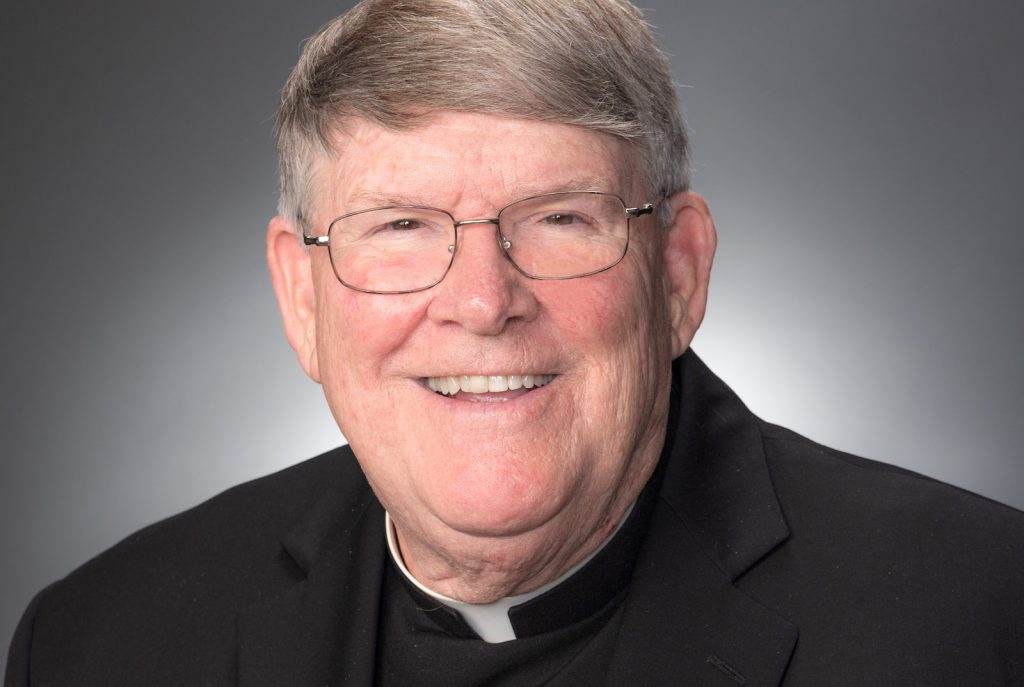Msgr. John Enzler: Building the financial foundation for a strong future
As we move closer to the April 15 tax deadline with last year’s W-2s in hand, I’m reminded of a meme that went viral a few years back. It said: I’m so glad that I took geometry when parallelogram season rolls around. I got a kick out of it, but I also realized it perfectly and insightfully encapsulated a major issue facing DC and the rest of the country: Many Americans struggle to understand and apply basic principles of personal finance. With the tax filing date near, this is a great time to carefully reassess our finances, improve our acumen, and plan for a strong financial future.

It’s well-documented that Americans have trouble comprehending finance — which isn’t surprising since it’s not a subject most of us studied in high school. A Financial Industry Regulation Authority Foundation study recently found that nearly two-thirds of Americans would fail a basic financial literacy test, and — perhaps more worrisome — over half of Americans don’t have enough cash on hand to cover an emergency. A staggering number of aging adults haven’t saved for retirement, while younger generations are drowning in credit card debt.
Financial illiteracy, or even just confusion, is a pervasive issue that doesn’t discriminate based on income, age or station in life; it affects everyone from corporate executives and young professionals to those dealing with chronic homelessness. At Catholic Charities of the Archdiocese of Washington, I work with vulnerable populations including the homeless, refugees and survivors of domestic violence, among others. Many of these clients face the challenging task of rebuilding their lives, having to focus on the bare necessities: food, shelter and employment.
The idea of learning personal finance is either a foreign concept or viewed incorrectly as a luxury reserved for people planning for college or retirement. In reality, everyone needs to plan for the future, whatever it looks like. Mastering personal finance isn’t a “luxury” skill; it’s one that lays the foundation for someone to achieve their goals — whether it’s paying the rent, setting up a bank account, making investments or saving for retirement. It’s the difference between building a house on a concrete foundation and putting it atop quicksand.
Residents in the District, in particular, struggle with financial challenges. DC has one of the highest costs of living in the country; meanwhile, a significant portion of the population lives in poverty. According to a 2014 report by the DC Financial Literacy Council, 12,238 residential foreclosure notices were issued in the District between 2007 and 2011, 856 bankruptcies were filed in 2012, and almost a third of residents were determined to be “unbanked” or “underbanked,” meaning they had inadequate or no access to banking services. All of these data points demonstrate the need for education around financial preparedness, which is unfortunately not readily available.
Seeing this educational void, we developed the Catholic Charities Financial Stability Network in October 2016 to offer free education and support to anyone (regardless of circumstance or religion) motivated to improve their financial future, with a focus on low- to mid-income individuals. Participants have access to financial experts with experience at some of the country’s biggest and most prestigious accounting firms. Topics focus on financial fitness from soup to nuts, including the basics of credit (what it is, how to build it and how to improve it). Through this program, participants learn how to set goals that can lead to increased income and assets. They become empowered to take control of their financial responsibilities and are prepared to take the next steps to improve their lives.
At Catholic Charities, we work closely with an incredible community of supporters who are dedicated to improving the lives of our clients. They serve meals, donate clothes and help provide the basic needs of our clients. But the volunteers in the Financial Stability Network provide a particularly important service by helping people understand personal finance — a distressingly overlooked topic when it comes to philanthropy. It harkens back the old proverb: Give a man a fish, he eats for a day; teach a man to fish, he eats for a lifetime. The skills and knowledge the participants gain from the program contribute to a bigger, longer-term plan to lift them out of a life in transition and open doors they never knew existed.
Whether we’re talking about people in need or those who work hard with little to show for it, financial empowerment is the key to breaking the cycles that prevent individuals and families from improving their lives. This is a conversation that must continue. Only 17 states require high school students to take a personal finance course as of 2018, according to a Council for Economic Education report. While that report notes that economic education is included in the K-12 standards for DC, there’s no requirement for high schools to offer a course in economics. And personal finance education isn’t specified in the District’s K-12 standards or visible in the DC Public Schools curriculum. In its 2014 report, the DC Financial Literacy Council recommended inclusion of a full financial literacy curriculum, but unfortunately it never has been implemented.
This is a complicated issue that needs to be tackled from an early age and continued into adulthood to help break cycles of poverty and prevent financial stagnation. It’s my hope that leaders in DC and across the country will take the necessary steps so that we will no longer find the irony in that meme.
Msgr. John Enzler is president and CEO of Catholic Charities of the Archdiocese of Washington.
About commentaries
The DC Line welcomes commentaries representing various viewpoints on local issues of concern, but the opinions expressed do not represent those of The DC Line. Submissions of up to 850 words may be sent to editor Chris Kain at chriskain@thedcline.org.


Comments are closed.